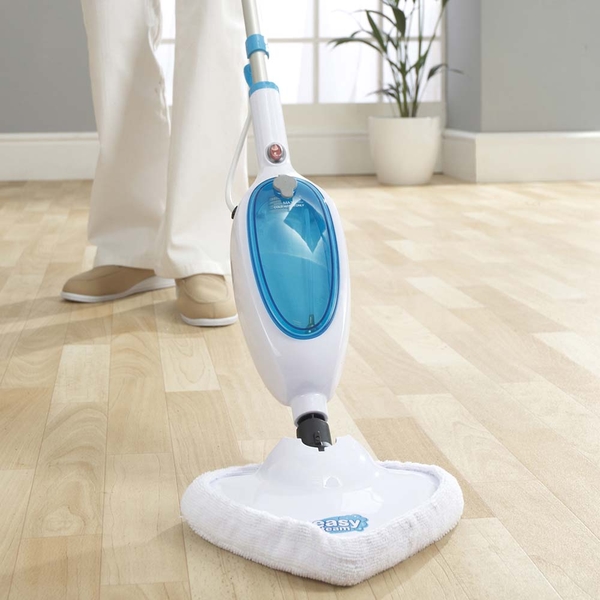Hindu religion and several other cultures talk about the concept of trinity. In the trinity principles, three types of activities are spoken about. There is a creator who creates and a destructor who destroys. In the middle sits the concept of security, the one who protects. As with anything in Hinduism, these principles are deified. They are Brahma (creation), Vishnu (protection) and Shiva (destruction). Our occupations today can be classified into these three categories. Along with them, I would also like to add another category to make it a quartet, i.e. maintenance. I call these the four pillars of occupations.
Let’s look at each of these categories.
Creation
Among the four categories, creation is the one that gets the maximum limelight. It is considered the most attractive among all the occupation categories. The world becomes a more abundant place with more possibilities as new things are created and human lives are made more convenient and rich. Here are some examples of occupations that can be classified as creation.
- Agriculture and food industry: produce food that we eat everyday.
- Business: creates products of value that customers use. Businesses also create new jobs for those who want to earn a living.
- Small scale, cottage and large scale industries: produce the goods that we consume in our day-to-day life.
- Research and development: creates new ideas and paves the way for creation of new types of goods and services that will become common place in future.
- Software: creates applications that we use in our electronic devices everyday, allowing activities to happen remotely at the touch of buttons.
- Authors: Create ideas and stories
- Artists: Create works of art
- Architects and civil engineers: construct buildings and infrastructure
- Teachers and leaders: groom new talent for the future
We already worship the importance of creation more than necessary. In fact, too much glamour is attached to creation at the expense of other categories, projecting those equally necessary categories as less important. It is human nature to get attracted to shiny new objects.
The excessive hype around creation
Here is how too much incentive is skewed towards creation. The top awards go to those who create: new car of the year, innovation of the year. No one gives much thought to the ‘the car with the best service’ or ‘the award for the maintenance team who kept Google’s search engine or GMail running throughout the year’. Even the best companies simply give a pat on the back of maintenance employees and ‘express gratitude’. Most business budgets go towards creation. Even electoral candidates promise us ‘more highways’, ‘more projects’, ‘more schemes’ and so on. Leader boards and piles of money go to the ‘salesmen’ of the year for generating more sales, rather than ‘customer servicemen’ of the year who solve customer problems and maintain customer satisfaction.
Are creation occupations right for you?
If you like to try new ideas, love to experiment and can take losses when your ideas fail to impress, then creation is the right category for you. Please note that as a creator, you MUST have the means to implement your ideas and learn to take failure in your stride. Merely having an ‘idea’ does not get credited as ‘creation’. Too often, we have seen people who have ‘brilliant ideas’, but won’t move a finger to implement them, either because they are lazy or because they are unwilling to take the risk of an eventual failure. They keep bouncing their ideas off other people, hoping that someone will own its implementation.
Maintenance
Maintenance is the process of making sure that our systems run to perfection everyday. We are taking the repeated, monotonous actions that are boring, but need to be done every day, every hour, like running buses around the city. We are looking for rots and decays from inside, dusting off the cobwebs, oiling joints and ensuring that everything is working as expected. Here are some maintenance jobs.
- Contractors and their workers who maintain roads, bridges, rails, drainage systems, fire systems and buildings.
- System administrators who make sure that applications are running on computer and electronic systems and that problems are solved as soon as possible.
- Doctors who make sure that our health is at its best.
- Electricity and water utility companies whose main job is to ensure smooth delivery of electricity and water to every household.
- Public transport and aviation companies who smoothly run trains, buses, ferries and aeroplanes to help us go from our homes to offices and even from one end of the country to another.
- Police who maintain law and order within their jurisdiction.
Maintenance jobs are considered unsexy. In software, freshers are often assigned maintenance of existing applications, so that they can learn the ropes of professional software engineering from someone else’s programming. Usually freshers are pitied for it with dialogues such as, “Oh dear, they assigned you to maintenance! You are stuck man!”
For me, the biggest difference between developed countries and the developing countries is that the former have figured out how important maintenance is. A large chunk of budget in North America, Europe and Australia seems to go towards maintenance as one can see from the quality of their roads, their cleanliness and the way their long standing systems such as transport work and the way their Victorian buildings are kept. Countries like India, Thailand and Bangladesh seem to think that building shiny new things contribute to development. Their existing infrastructure in a state of low maintenance, neglect or disrepair. It’s almost like they think that the roads, bridges and buildings will take care of themselves.
I am yet to see an electoral candidate, regardless of political party, who bravely promises flawless maintenance of existing roads, electricity or water supply. Instead they go into needless creation mode, promising ‘new highways’, ‘new schemes’ and ‘new institutions’. It is common knowledge that maintenance does not stir intrigue or win votes. Only creation does.
Are maintenance occupations right for you?
If you are a personality that likes a safe job, one in which the day-to-day activities are predictable 90% of the time, then maintenance category is for you. But note that you have a huge responsibility. Creation people walk away from a system as soon as they are done creating. Maintenance people will be the ones tending to it regularly. There will be occasional problems for which you need to react calmly and swiftly.
Security / Protection
While maintenance is the process of running a system as promised and preventing it from destructing internally, security is the process of protecting a system from external threats. Many systems constantly face threats from outside, from forces beyond the control of those who work within the systems. Security is a special type of skill that anticipates threats from outside and reacts to threats when they happen. Here are some security occupations.
- The national army that protects a nation from intrusions, acts of terrorism and also during the destruction caused by natural calamities.
- Online security consultants who protect your private data on the Internet and sensitive company data on their servers.
- Doctors who perform checkups and catch symptoms before they get worse.
- Private security guards who are deployed at the front of housing societies or companies to alert the police when something goes wrong.
- Police who watch for threats within their jurisdiction.
Security-oriented people are paid to be suspicious. They can be difficult to deal with when things are fine, because they still exercise suspicion. e.g. a stern guard at the mall who will go through your skinny looking backpack or the doctor who doesn’t like your soft drink habit even though your vitals are perfectly fit.
Security people also have to work with what they have. They may want new technology to scan for threats or more people in their ranks to make their life easier, but they will carry on with whatever they have at their disposal.
Are security occupations right for me?
Security occupations will fit you perfectly if you are suspicious by nature and find the need to get to the bottom of things when they go wrong. It also helps immensely if your reaction is calculated and swift at the face of adversity, instead of being triggered by panic.
Clean up
The word destruction used in trinity is too harsh for an occupation category which is extremely necessary. I prefer the terms ‘clean up’ and ‘removal’. In this category of occupations, you are tasked with getting rid of clutter from the world. The clutter is caused by the other three occupation categories. The clutter is a hindrance, because they get in the way. They leave you with no more space for creation. They cause hurdles for maintenance and security. Clutter, waste and decay need to be cleaned up and done so regularly. It creates more usable space for the other categories. Here are some clean up occupations.
- Cleanliness personnel who clean up dust, grime and deposits.
- Funeral and morgue personnel who bury or cremate or bury the deceased.
- Recycling personnel who take away recyclable waste from our household and give them to recycling plants.
- New age companies that segregate waste seperately and channel them for reuse accordingly. Food waste is turned to compost, while paper, plastic and metal are recycled.
When things are going bad, such as a country facing turmoil, economy hitting rock bottom or a home facing disputes, clean up activities are the first ones to be sacrificed. Well, clean up is the one thing that shouldn’t be sacrificed, because it is the ONE category of occupation that restores order in chaos.
Are clean-up occupations good for me?
Clean up requires a different mindset. It requires an intolerance for clutter and the obsession to feel good when waste is tossed away and space is reclaimed. It also requires feeling detached from sentiments and looking at the object in front of you as something to be discarded. You should be able to rip up a discarded toy teddy bear to salvage fabric, smash an old working music keyboard because the owner discarded it as outdated or bury the body of a deceased man who was once someone’s son, father or husband.
It also means that you work with what other people call waste, thus making your occupation sound degenerate. You should have the ability to sense opportunities where others feel repulsion, so that your clean-up occupation can create new possibilities where others see a dead end. E.g. a use of animal waste as biogas or dead mobile phone as a source of metal, silicon and plastic.
If you fit the above personality, then clean-up is for you.
Conclusion
In a world that is skewed towards too much creation and production, it is time to re-assess the four pillars of occupation and treat all of them as equally necessary, with no prestige or stigma. Even if one of them stops, there will be imbalance and the world won’t be the same place as we know it to be today.




